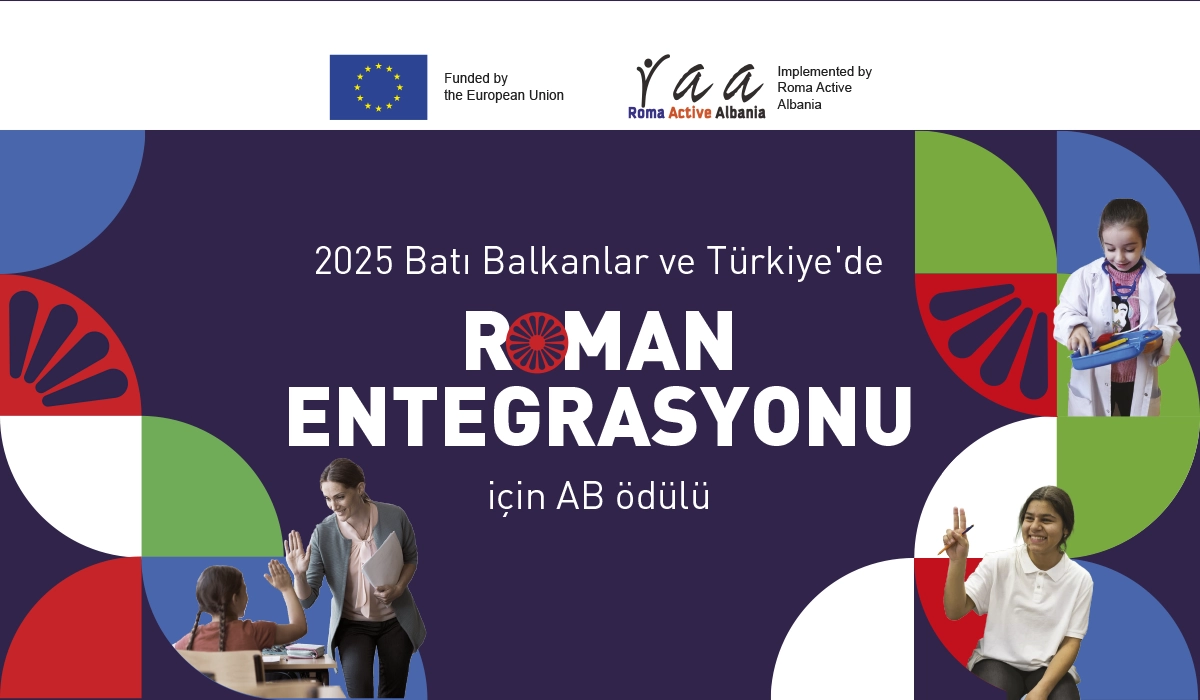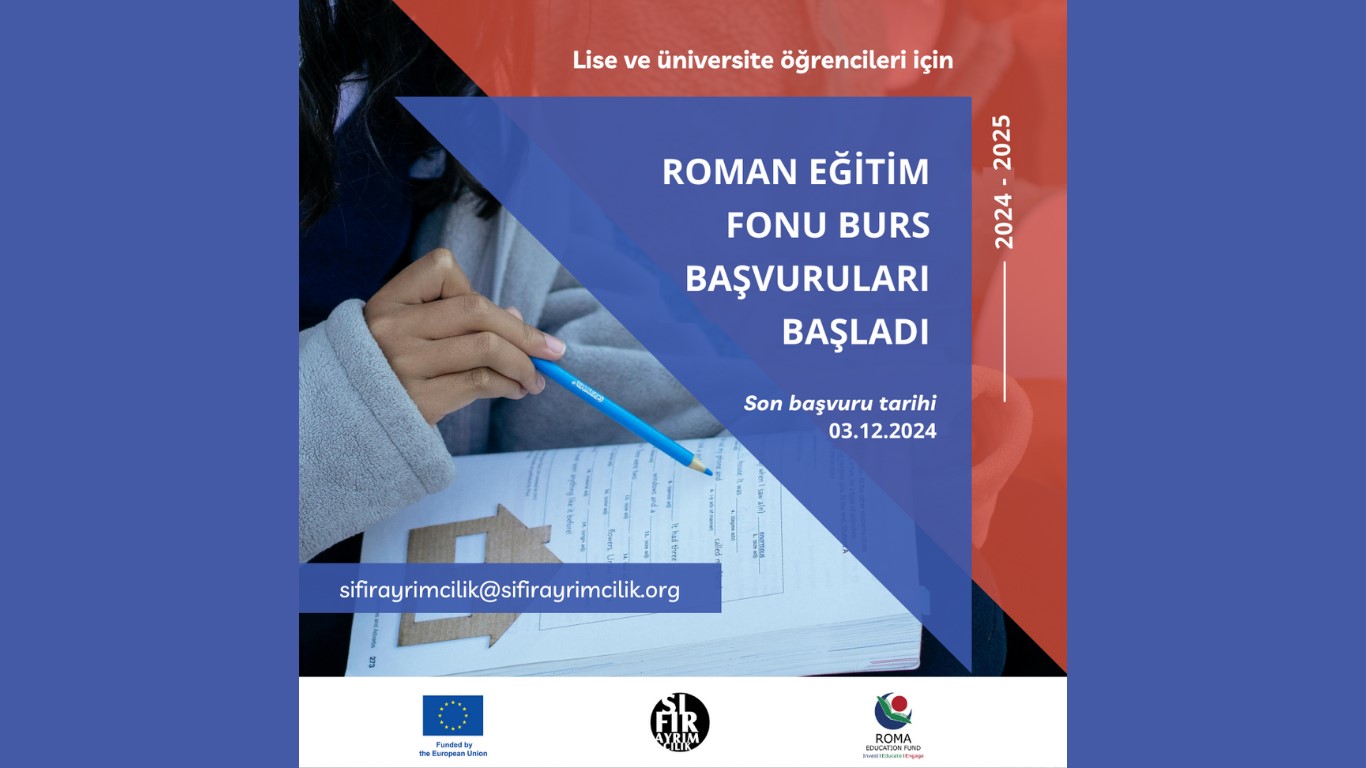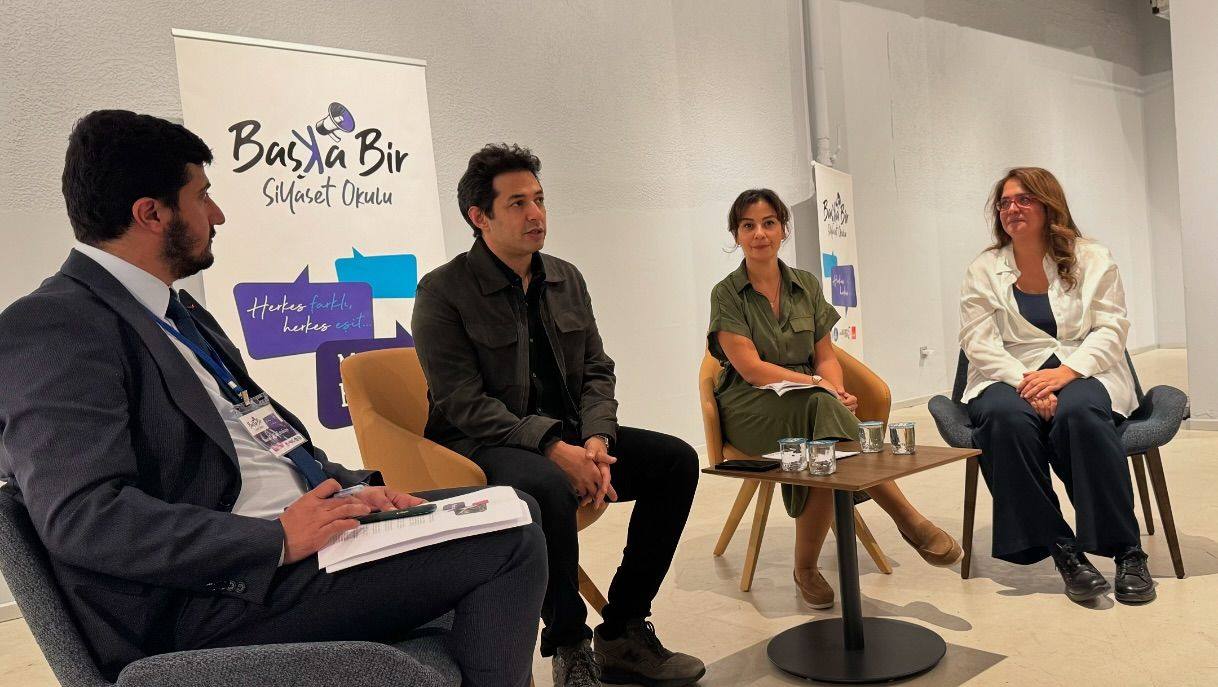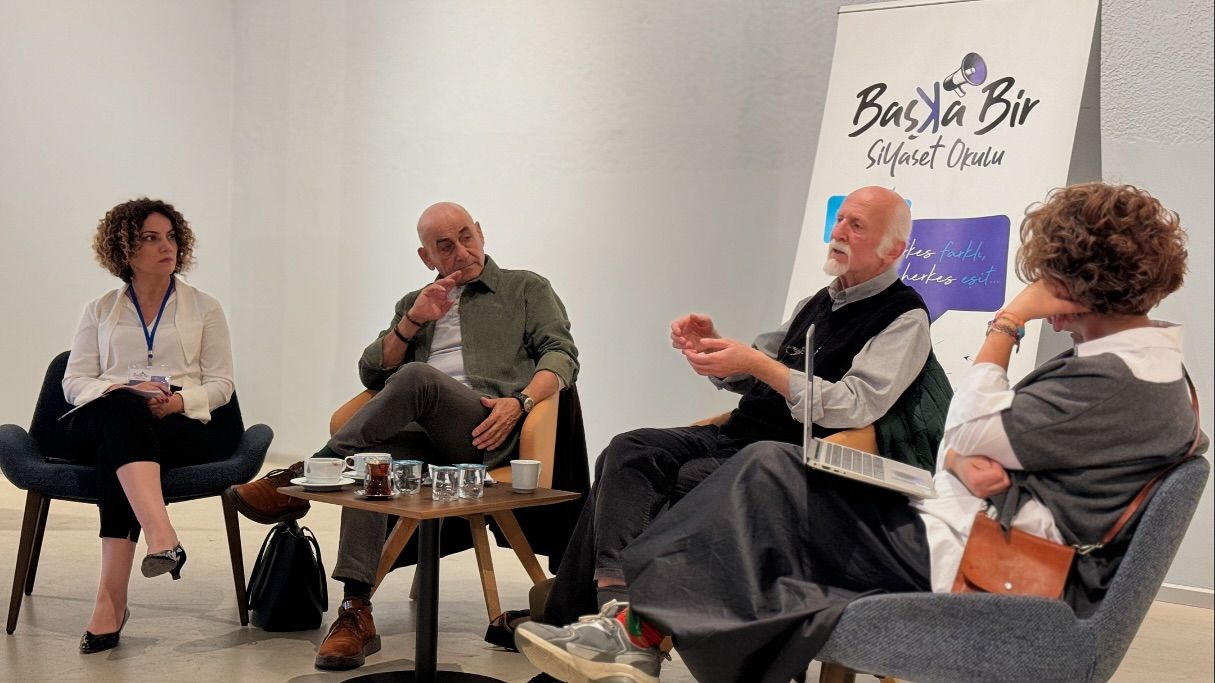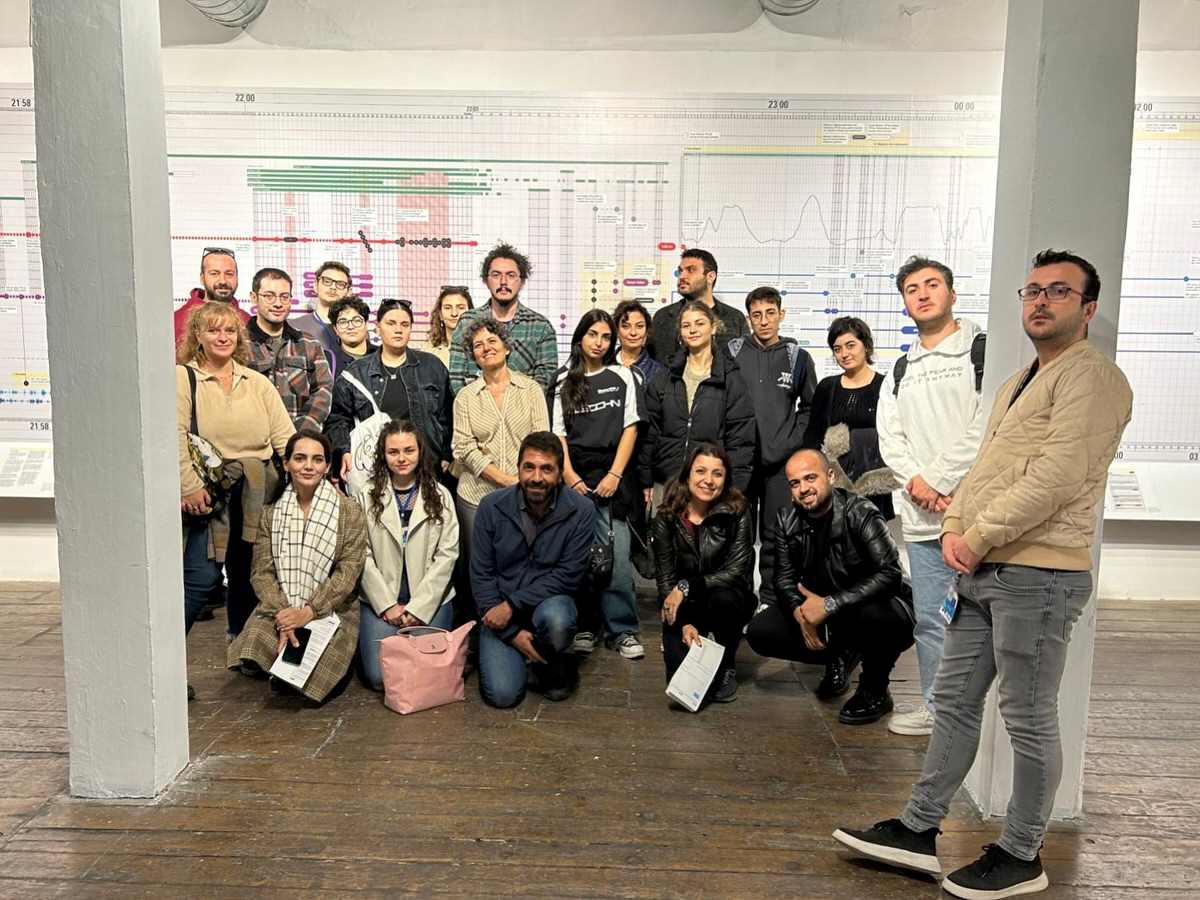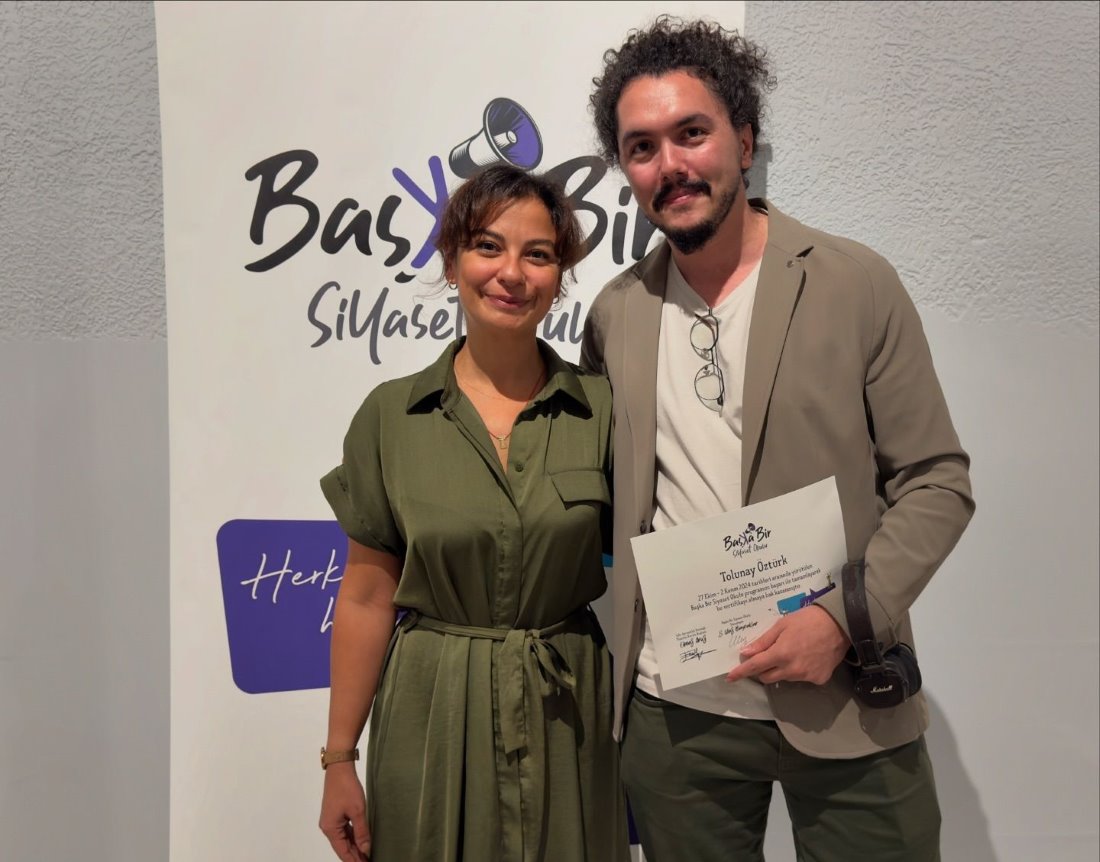The fundamental issue facing Roma communities is housing. Without addressing this, accessing education, health, and employment rights remains challenging. Reinstating rights unconditionally will contribute to our human development.
Roma are the most impoverished and marginalized community with the lowest education levels and highest unemployment rates in both Europe and Turkey. Across Turkey, they live with minimal access to housing, education, health, and employment rights and opportunities. Despite being in the right, they often find themselves unjustly treated.
For instance, if their homes are demolished, they resort to makeshift "tent homes," transitioning from property owners to squatters. Or a Roma woman selling flowers on the roadside is immediately harassed by police and municipal officers. Why? Because she wants more than just selling flowers to passersby. Who is at fault? The harshest penalties are often imposed on them. This is the "blind eye" perspective.
Zero Discrimination Association and Çatalca Roma Association organized a meeting on July 4 at Çatalca Public Education Center to facilitate "Access to Citizenship Rights for Roma." The meeting included Roma residents from Kaleiçi Neighborhood, representatives from Çatalca District Governorship and its service institutions, civil society representatives, and local press members.
We Are Brothers, But...
While this meeting took place in Çatalca, demolitions of makeshift shelters set up by displaced Roma in Küçükbakkalköy continued across from Ataşehir District Governorship. Bulldozers operated by Ataşehir Municipality, under the instruction of Istanbul Metropolitan Municipality, were at work. Ataşehir District Governorship provided financial aid to those in dire circumstances. Who is more helpless? The destroyer? The destroyed? The ones ordering the destruction? The ones providing aid? Who is helpless?
The common and most significant issue for Roma in both Küçükbakkalköy and Çatalca is housing, driven by capitalist reasons in one case and by natural disaster in the other.
Worse still, individuals and officials in such situations produce racist thoughts, attitudes, and behaviors rejecting those without proper housing. So racist that they do not see the ongoing Roma lives right before their eyes. They frequently say, "We do not exclude them; we love them; they are humans, we are brothers," but continue with, "But Roma are lazy, pleasure-seeking people..."
The meeting in Çatalca aimed to explain what citizenship rights are and for whom, and to strengthen dialogue and mutual understanding between citizens entitled to these rights and public service personnel.
Participants explaining their services included representatives from Çatalca District Governorship and its affiliated service departments: Social Assistance and Solidarity Foundation, Social Security Institution, National Education Directorate, Youth and Sports Directorate, Community Health Center, Apprenticeship Training Center, and Community Supported Policing Unit.
Throughout the day-long meeting, Roma asked representatives about resolving their issues. The primary question was, "How much longer will we continue to live in these containers?" Another young Roma asked, "I want to continue my education and go to university. How will you help me?" and someone else inquired about opening a literacy course.
We Must Be Demanding
Citizenship rights are part of our public rights. They are being renewed and expanded. It is up to citizens to know, research, and learn how to exercise these rights. The state cannot yet call out to its citizens like this: "Mr. Ahmet, you took your daughter’s school certificate. Here are the rights arising from your child's new situation. You can benefit from these rights by applying to our institutions," or "Mrs. Sevim, you have reached retirement age, but you can start your retirement process using maternity debt for missing days; here’s what you need to do." They are afraid.
Any state employee you talk to fears sharing their knowledge to solve your problem. They fear that their statements will bind them or harm their position if they make a mistake. Providing information without being asked is not yet integrated into the system. But it will be one day. For that "one day" to come quickly, we as a society must demand it.
We should ask so many questions that eventually clear citizenship rights handbooks are produced. Citizenship services generated via Alo 170 or turkiye.gov.tr should be created without needing to be requested. As a society, we must move past the mindset that the state is sensitive and careful in collecting and elusive in giving.
Furthermore, while exercising our citizenship rights or serving their use, we need to monitor, discuss, and promote the new situations that arise, especially the approach of "I can benefit from this right; why can't my neighbor?"
Of the 58 participants in the Çatalca study, 26 are illiterate. This group, predominantly women, ranges in age from 12 to 74. The time span between two generations is 62 years. Additionally, there were 16 individuals aged 7-18 who were school-aged but not enrolled, and 16 who did not benefit from pre-school education rights.
Almost all the women go out daily to clean houses and stairs without registration. Most men work uninsured and in temporary jobs. They cannot benefit from education and aid rights because they cannot have their Turkish ID numbers written on their ID cards. The reason is they lack the financial means to prepare photos, documents, or pay the processing fees for ID card replacement.
Since the 1999 flood disaster, 62 Roma families from Kaleiçi Neighborhood in Çatalca have been housed in these 21 square meter containers. The number of family members ranges from three to six. There are young children attending school, as well as youth and elderly residents. Life is hardest for them.
Today, housing remains the primary issue facing the Roma community. Without addressing this need, their ability to access education, health, and employment rights remains fragile. Restoring rights to those left behind unconditionally will help us move beyond sentences starting with "but," contributing to human development.
Nilgün Öztunalı
Source: Bianet
http://www.bianet.org/biamag/azinliklar/131334-romanlar-vatandaslik-hakkindan-nasil-yararlanabilir

